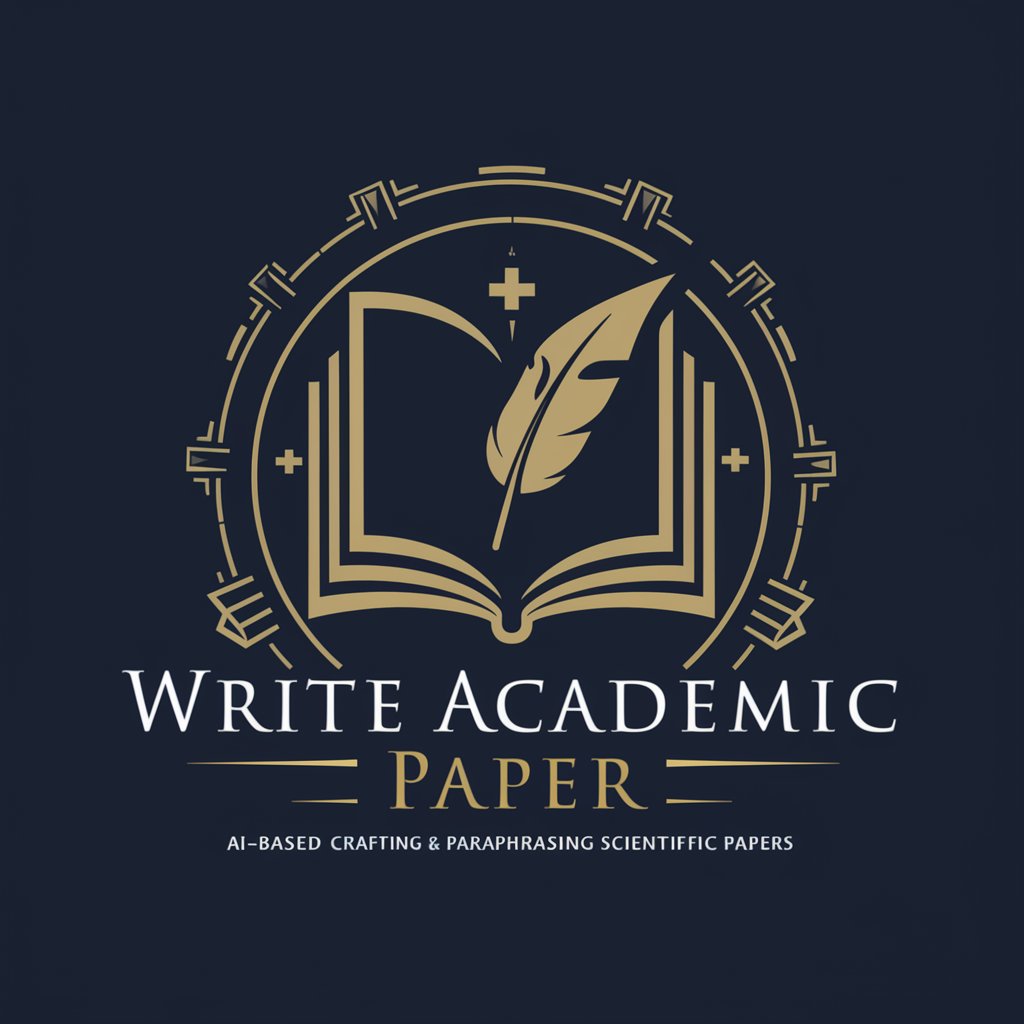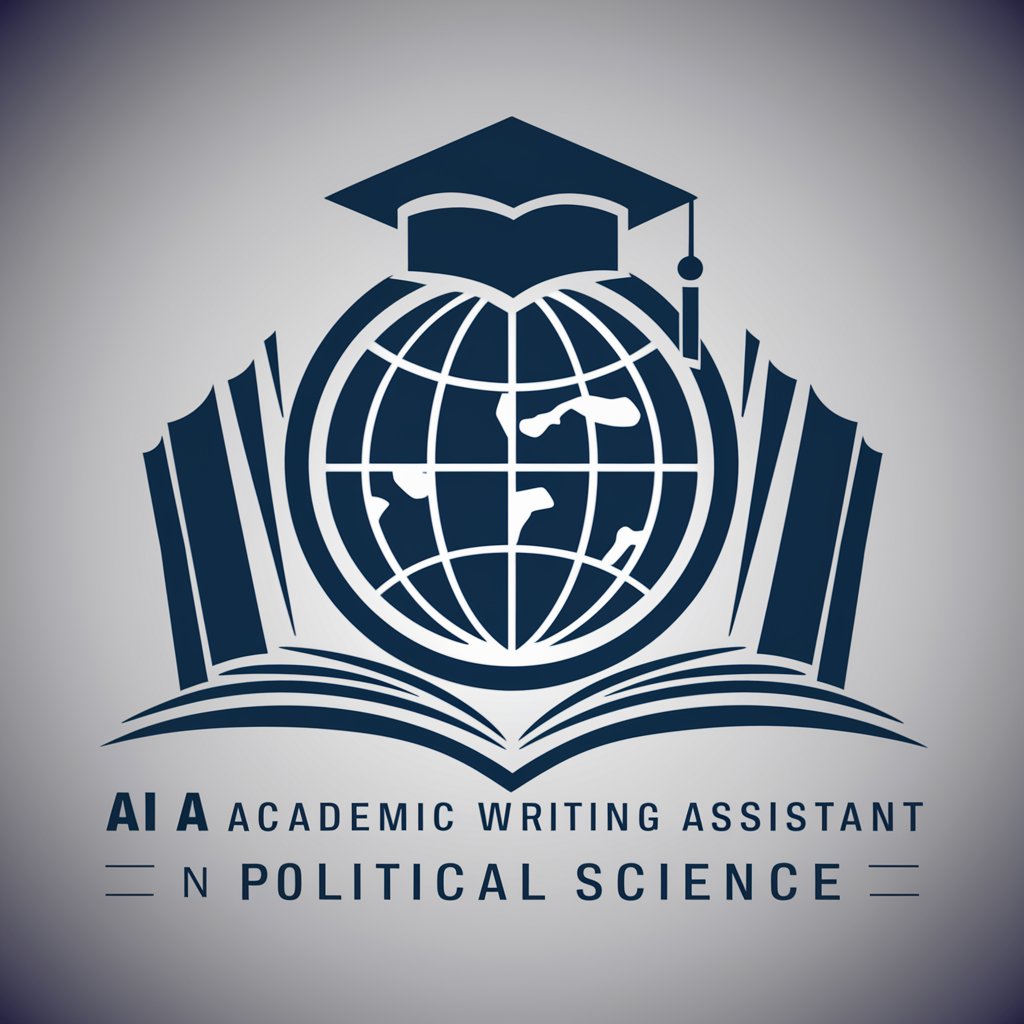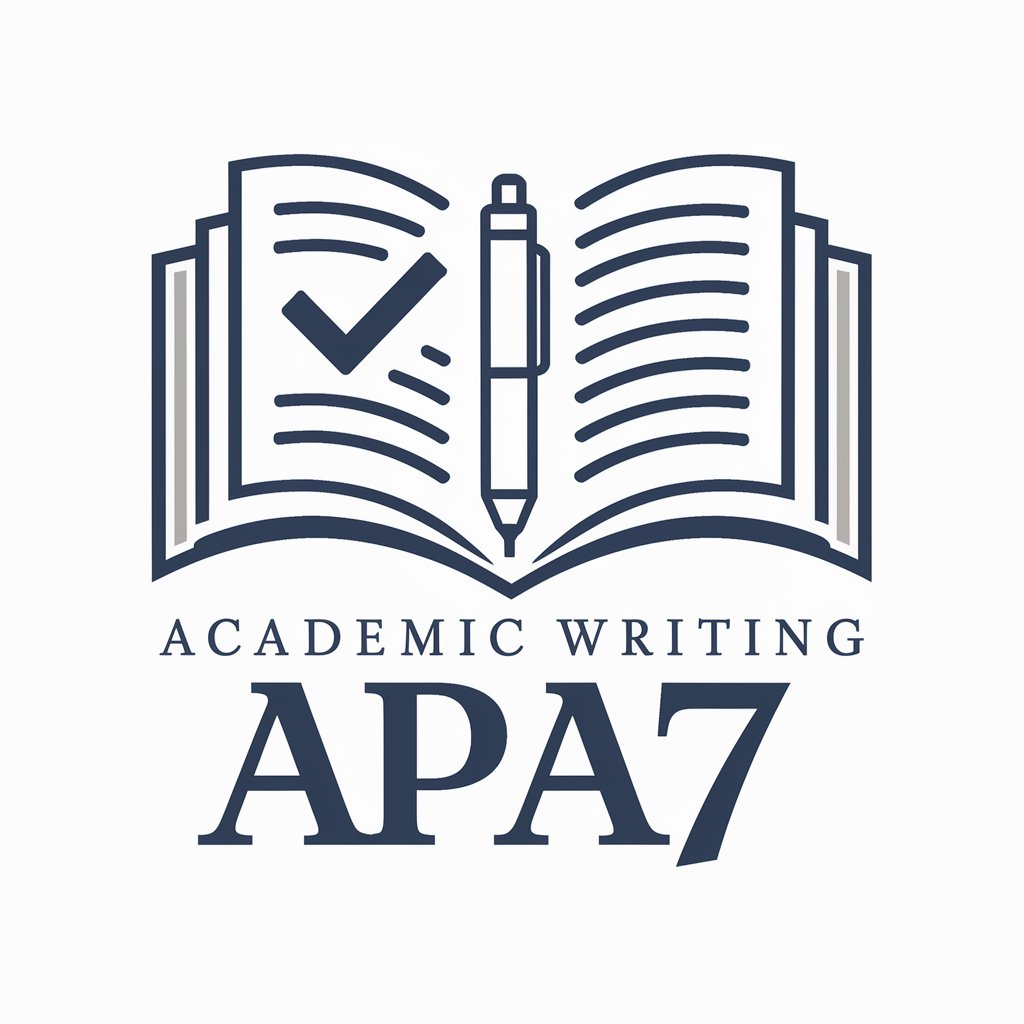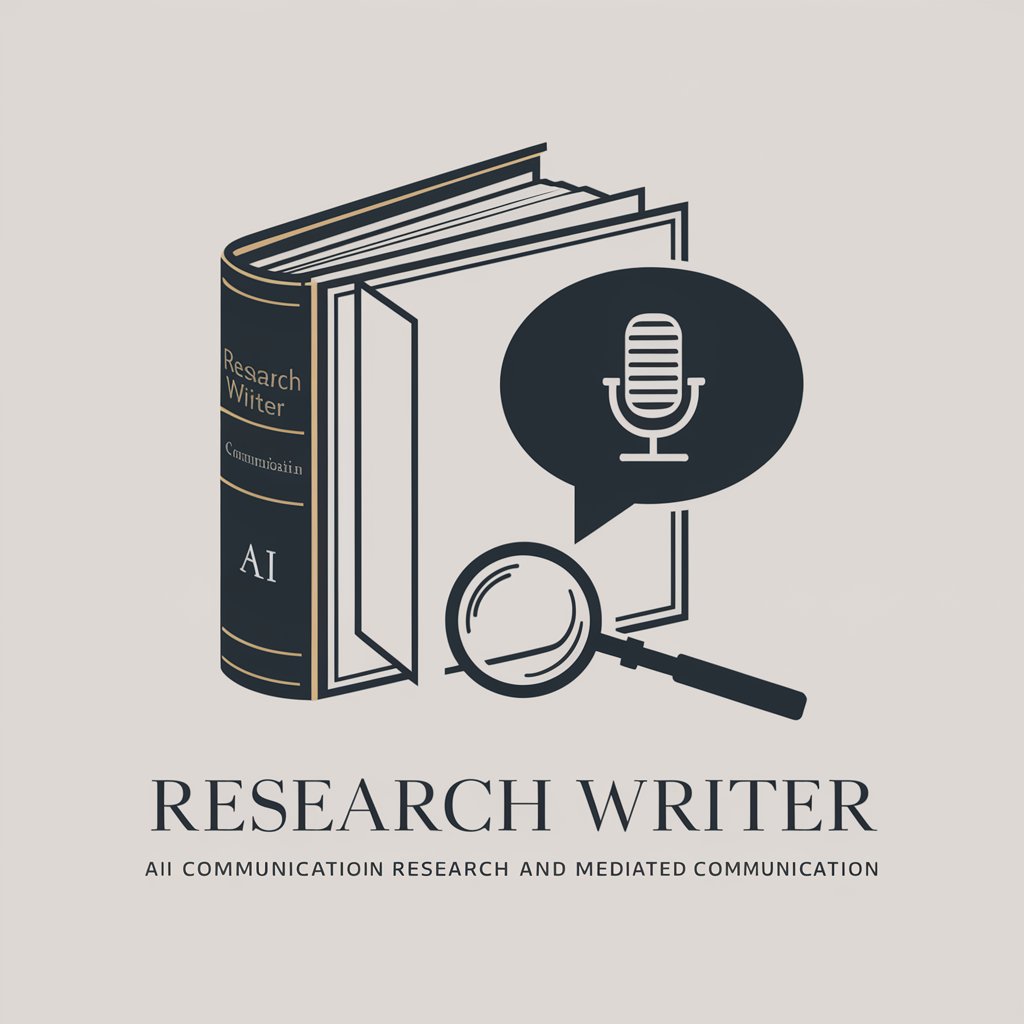
Academic article writing tips for social science - Academic Writing Insights
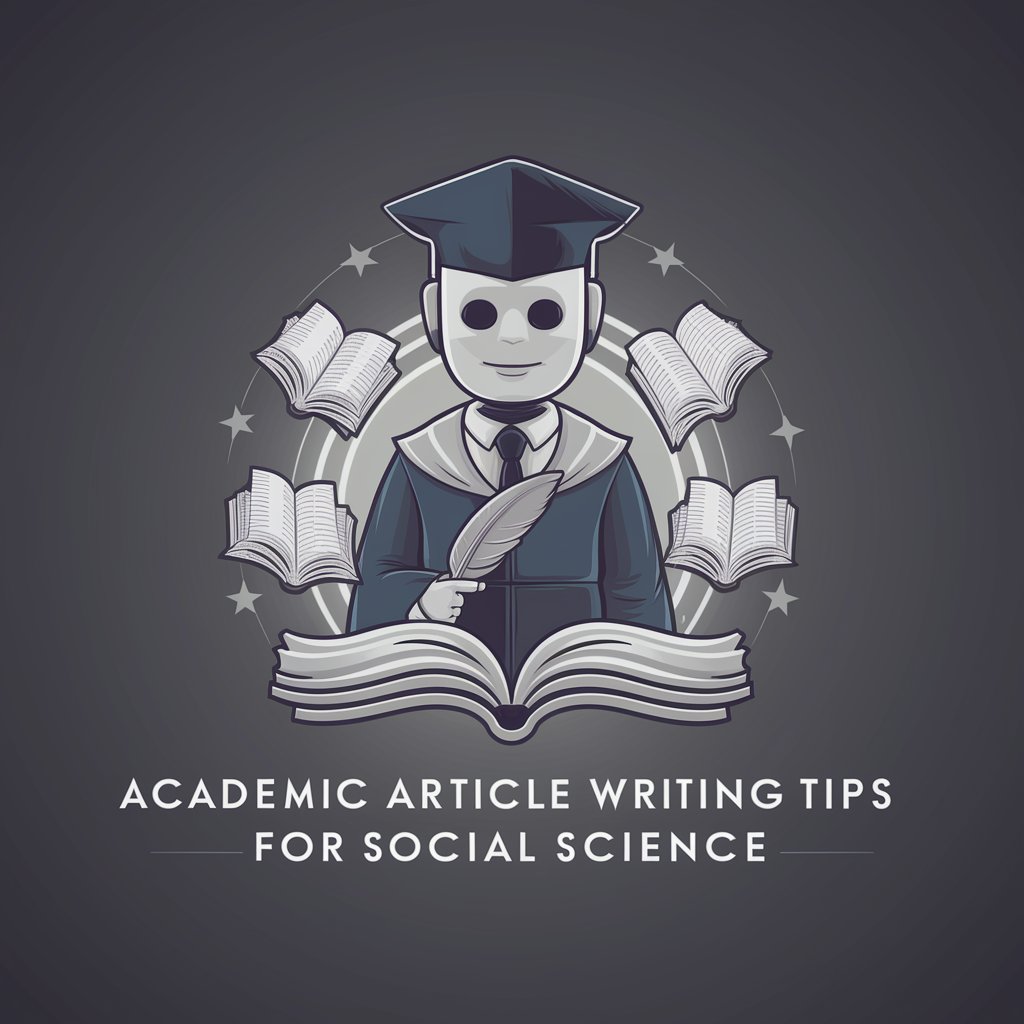
Welcome! Let's refine your academic paper for excellence.
Elevate Research with AI-Driven Insights
Discuss how to effectively motivate an academic paper.
Explain the importance of knowing your audience in academic writing.
Describe the significance of framing a paper around a puzzle in the world.
Analyze the role of the null hypothesis in making a paper compelling.
Get Embed Code
Introduction to Academic Article Writing Tips for Social Science
Academic Article Writing Tips for Social Science is designed to aid researchers, scholars, and students in enhancing the quality and impact of their academic papers within the social sciences domain. This service focuses on applying key principles, derived from insights such as those by Ezra Zuckerman, to improve the structure, argumentation, and presentation of academic work. For example, it assists in framing a compelling introduction that motivates the study, identifying and addressing the target audience's interests, and emphasizing the importance of the research question or puzzle the paper seeks to address. A scenario illustrating its application could involve a graduate student struggling to articulate the significance of their research on organizational behavior. The service would guide the student in constructing an introduction that clearly outlines the novel insights their research offers against the backdrop of existing literature, thereby making their work more appealing to scholars interested in organizational studies. Powered by ChatGPT-4o。

Main Functions of Academic Article Writing Tips for Social Science
Enhancing Paper Motivation
Example
Guiding authors to craft engaging introductions that highlight the novelty and relevance of their research.
Scenario
An author is preparing a manuscript on the impact of social media on political mobilization. The service helps them to articulate why this is a critical area of inquiry in the current digital age and how their study advances our understanding of political engagement.
Audience Targeting
Example
Advising on tailoring the paper to meet the specific interests and standards of the intended academic journal or community.
Scenario
A researcher aiming to publish in a journal focused on cultural studies is assisted in framing their analysis of gender representations in media in a way that aligns with the journal’s thematic and theoretical preferences.
Developing Strong Hypotheses
Example
Assisting in the formulation of clear, concise, and testable hypotheses that are directly related to the central research puzzle.
Scenario
A PhD candidate is guided in refining their hypotheses about the relationship between urban development and community social capital, ensuring that each hypothesis is tightly connected to the overarching research question.
Ideal Users of Academic Article Writing Tips for Social Science
Graduate Students
Graduate students, particularly those working on their theses or dissertations, would benefit from guidance on structuring their arguments, selecting appropriate methodologies, and effectively communicating their findings to an academic audience.
Early Career Researchers
Early career researchers looking to establish themselves within their academic communities can use this service to ensure their work is impactful, well-received, and contributes meaningfully to ongoing scholarly conversations.
Non-native English Speakers
Researchers for whom English is a second language might find this service particularly useful in articulating their ideas clearly and persuasively, adhering to the conventions of academic English writing within the social sciences.

Using Academic Article Writing Tips for Social Science
Initiate the Process
Begin by accessing a platform offering structured guidance without the need for an account or subscription, such as visiting yeschat.ai for a complimentary trial.
Understand Your Audience
Identify the target academic audience or journal for your article to tailor the content, language, and structure according to their preferences and standards.
Focus on Your Research Question
Clearly define the research question or puzzle your paper addresses, ensuring it offers a novel insight or fills a gap in existing literature.
Draft and Refine
Create an initial draft focusing on a coherent argument, supported by evidence. Use feedback and these tips to refine your argument, structure, and presentation.
Leverage Feedback
Solicit and incorporate feedback from peers or mentors familiar with your field to enhance the clarity, coherence, and impact of your paper.
Try other advanced and practical GPTs
政治家サポートAI
Empowering Your Political Journey

MedBattles Visualizer
Turn medical knowledge into collectible art.

Umut Hoca AI
AI-powered Social Work Study Assistant

Fair Grader
Elevating Writing with AI-Powered Feedback

japanize-matplotlib
Seamless Japanese integration in data plots.

【コーチングAI】ソクラテスおじいちゃん
Enlighten Your Path with AI Wisdom

CosplayAIs『海賊王AI -ルフィ-』
Become the Pirate King with AI

Jess: Meals Photo Analyzer
Transform your meal photos into calorie insights.

Kenyan Treasury Bill Auction Result Extractor
Automate Treasury Bill Insights with AI

要件 サポーター
Craft precise requirements with AI

Clair
Enhance Intuition with AI Guidance

BoGBOT
Elevate Your Research with AI

Q&A on Academic Article Writing Tips for Social Science
How can I effectively motivate my social science article?
Start by highlighting the significance of your research question in the introduction, showing how it addresses a gap in the literature or a real-world problem. Use compelling evidence or scenarios to engage the reader's interest.
What's the best way to know my academic audience?
Research the journals or conferences where you aim to publish, understanding their thematic focus and methodological preferences. Also, consider the broader disciplinary and interdisciplinary audiences that may benefit from your research.
How do I choose between focusing on a 'row' or 'column' audience?
Decide based on your research's primary contribution. If it's grounded in a specific phenomenon or case study, target a 'row' audience. If it's methodological or theoretical, aim for a 'column' audience.
Can you explain the importance of framing around a puzzle?
Framing your research around a puzzle or question emphasizes its relevance and the gap it fills. It engages the reader by presenting a challenge that your research addresses, making it more compelling.
Why is it advised to have a compelling null hypothesis?
A compelling null hypothesis sets up a strong counterargument to your thesis, enhancing the academic rigor of your paper. Demonstrating why the null hypothesis might be plausible yet incorrect under certain conditions strengthens your argument.

